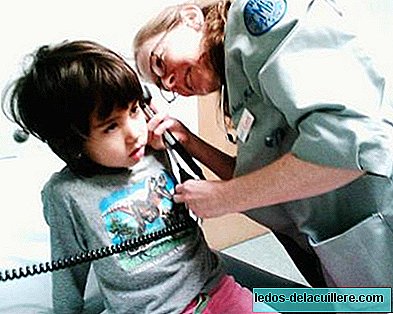
At the end of February, The first baby of a pregnant woman with Zika was born prematurely in Spain, at 30 weeks gestation. It has been confirmed by the Galician Ministry of Health, which has activated the action protocol established by the Ministry of Health to deal with these cases. At some point the first birth of a pregnant woman with Zika was going to happen, taking into account that of the 38 cases diagnosed so far in Spain, five are pregnant women who contracted the infection in some Latin American country.
The baby's mother had contracted the infection in Venezuela in the second trimester of pregnancy and although she has been discharged after childbirth, her baby continues to be admitted to the Santiago Hospital, but for reasons "alien to Zika."
Protocol against Zika in childbirth
The protocol establishes to carry out a series of birth tests, such as collecting samples of both umbilical cord blood, mother and newborn blood. It is also established to take samples of the placenta, but apparently this procedure has not been performed.
Specifically, the newborn will have two types of blood tests: a PCR, to detect or not the presence of the virus, and a serology, to see if his defensive system has reacted against the virus. Both tests would indicate presence of infection. In addition, the cranial perimeter will be measured to determine the presence of microcephaly. Abnormalities of the central nervous system will be ruled out by brain ultrasound and, if there are alterations or there is microcephaly, an MRI will be done, which will assess how the brain is formed and what type of lesions there are. It is also important, says the Catalan protocol, the ophthalmological and auditory assessment.
The analyzes confirmed that the mother had been infected but the baby's results are still unknown, although it evolves well and for now, there is no sequel linked to Zika infection such as microcephaly or neurological problems. The child remains admitted waiting for him to gain weight because he was born underweight. According to Xurxo Hervada, Deputy General Director of Health Information and Epidemiology of the Galician Health Service, "Anyway, if the infection is confirmed, I don't think it will change much the medical performance, but in the long term because the monitoring would be more intense."
If the tests performed on the baby at birth are negative, they will be repeated every two or three months to verify that they remain negative. If the baby is infected, in the absence of curative treatment, symptomatic treatment and control by the services of infectology, ophthalmology, otolaryngology and neuropediatrics are recommended.












